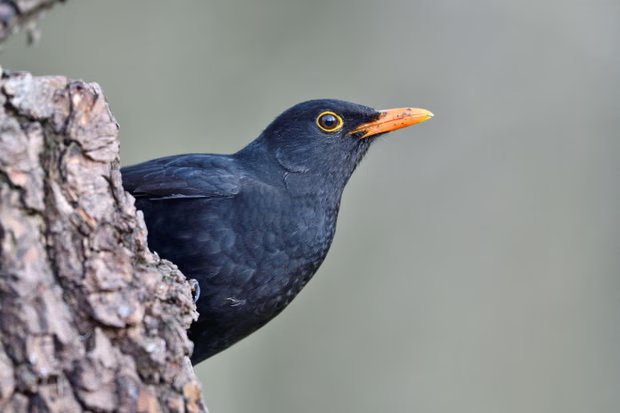
France’s insect-eating bird populations appear to be making a cautious yet promising comeback following the European Union’s ban on neonicotinoid pesticides, according to the first major study examining post-ban wildlife recovery.
Researchers say the findings offer early evidence that policy action can reverse biodiversity loss. Neonicotinoids, the world’s most widely used class of insecticides, were banned for outdoor agricultural use in the EU in late 2018.
By 2022, four years after the ban took effect, scientists observed that France’s populations of species such as blackbirds, blackcaps and chaffinches—birds highly dependent on insect prey—had increased by an estimated 2% to 3%.
The study, published in Environmental Pollution, analysed data from more than 1,900 sites as part of the French Breeding Bird Survey. Researchers compared bird numbers from 2013 to 2018, prior to the ban, with data from 2019 to 2022.
They found insectivorous bird populations at sites previously treated with pesticides were on average 12% lower than those in areas without neonicotinoid use, underscoring the chemicals’ impact.
Lead researcher Thomas Perrot of the Fondation pour la recherche sur la biodiversité said that even modest increases were significant. “Our results clearly point to neonicotinoid bans as an effective conservation measure for insectivorous birds,” he said. “Even a few percentage points’ increase is meaningful—it shows the ban made a difference.”
Researchers believe other insect-dependent species, such as bats, small mammals and aquatic life, may also be benefiting. Generalist birds like wood pigeons and house sparrows, which rely less on insects, showed minimal change.
Experts say the findings could reflect trends across the EU, but equivalent research in other countries has yet to be conducted. The UK implemented similar restrictions in 2018, though limited emergency exemptions remain. In contrast, neonicotinoids continue to be widely used in the US, which has lost nearly 3 billion insectivorous birds since the 1970s.
Some scientists urge caution, noting that factors such as habitat changes and climate variability also influence bird numbers. James Pearce-Higgins, director of science at the British Trust for Ornithology, said the results indicate “early signs of weak population recovery,” but added that more long-term data is needed.
Environmental advocates say the findings highlight the power of public pressure. “A lot of pressure was necessary to force governments to make this ban,” said Frans van Alebeek of BirdLife Netherlands. “The positive message is that banning pesticides helps wildlife recover.”
However, researchers warn that recovery will be slow. Neonicotinoids can persist in soils for years, meaning insects—and the birds that rely on them—may continue to be affected. Full restoration of bird populations could take decades.
Perrot said sustainable agricultural practices remain key. “If agriculture keeps focusing on maximum yields instead of sustainability, we’ll keep seeing declines,” he warned.
The study adds urgency to debates over pesticide regulation in developing nations, where restrictions are weaker and impacts remain poorly documented.